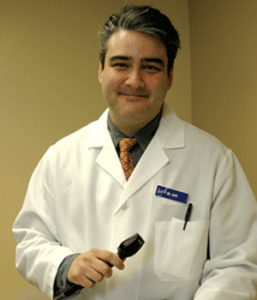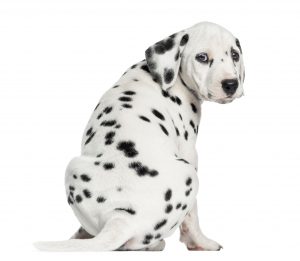-
Adopt
-
Veterinary Care
Services
Client Information
- What to Expect – Angell Boston
- Client Rights and Responsibilities
- Payments / Financial Assistance
- Pharmacy
- Client Policies
- Our Doctors
- Grief Support / Counseling
- Directions and Parking
- Helpful “How-to” Pet Care
Online Payments
Referrals
- Referral Forms/Contact
- Direct Connect
- Referring Veterinarian Portal
- Clinical Articles
- Partners in Care Newsletter
CE, Internships & Alumni Info
CE Seminar Schedule
Emergency: Boston
Emergency: Waltham
Poison Control Hotline
-
Programs & Resources
- Careers
-
Donate Now
 by Joel Kaye, DVM
by Joel Kaye, DVM
Angell General Medicine Service
617-522-7282
www.angell.org/generalmedicine
What are anal sacs?
 Anal sacs or anal glands are two small glands that sit just inside your pet’s anus. If looking at your pet from behind, they are located at 4 and 8 o’clock on the anus. They contain a thick, pungent, oily material commonly described as smelling fishy. Most wild animals empty these glands voluntarily for scent marking or self-defense. With evolution, domesticated animals have lost the ability to do so. In most animals, exercise and normal defecation serve to empty the sacs. However about 12% of dogs become unable to empty their sacs which can become impacted and uncomfortable. Anal sac issues seem more common in smaller breed dogs. Some pets are born with narrow gland outflow and are predisposed to issues. Others become symptomatic after trauma to the area or secondary to allergies. The typical first symptoms you will see are scooting or licking at the behind. Other pets are more subtle and will chase their tails or just carry their tails down. Signs are similar for both dogs and cats.
Anal sacs or anal glands are two small glands that sit just inside your pet’s anus. If looking at your pet from behind, they are located at 4 and 8 o’clock on the anus. They contain a thick, pungent, oily material commonly described as smelling fishy. Most wild animals empty these glands voluntarily for scent marking or self-defense. With evolution, domesticated animals have lost the ability to do so. In most animals, exercise and normal defecation serve to empty the sacs. However about 12% of dogs become unable to empty their sacs which can become impacted and uncomfortable. Anal sac issues seem more common in smaller breed dogs. Some pets are born with narrow gland outflow and are predisposed to issues. Others become symptomatic after trauma to the area or secondary to allergies. The typical first symptoms you will see are scooting or licking at the behind. Other pets are more subtle and will chase their tails or just carry their tails down. Signs are similar for both dogs and cats.
What can happen if the sacs are not emptied?
If a pet cannot express the anal sacs themselves, they can become impacted with a thick, oily material. This is uncomfortable for the pet leading the aforementioned scooting. If not emptied at this point the gland can become infected. A pet with an infected anal sac will present with a swelling to the side and just below the anus. These can be quite frightening to see. The good news is that once treated by a veterinarian, these heal well.
What can I do to prevent this from happening?
There is no one thing that can be done to prevent anal sac issues. Good nutrition and exercise can help with normal expression. Some pets will respond to adding fiber to their diet. This will cause expansion of the stool size and hopefully express the anal sacs.
Anal sac expression
Though unsavory, most owners can be instructed in how to express their pet’s anal sacs. This can be achieved in some pets with gentle squeezing on either side of the anus. Most pets require internal expression. To accomplish this, insert a lubricated gloved finger in the anus and squeeze the sac between thumb and forefinger. Hold a tissue or paper towel over the anus to capture the excretions.
How often should anal sacs be emptied?
In my opinion if a pet is not exhibiting signs of anal sac irritation, leave them alone. Let the pet tell you when the anal sacs need emptying.
In some cases despite all the above, some pets have recurrent anal sac impaction/infection. What can be done?
 Some pets will respond to antibiotic infusion into the anal glands. If the issues still continue then removal of the glands (anal sacculectomy) is indicated. This procedure, in skilled surgeon’s hands, is very effective in solving the problem. The good news is that most pets will go through life experiencing no issues with the anal sacs. One last point to make is that scooting is not related to worm infestation, but much more often related to anal sac issues.
Some pets will respond to antibiotic infusion into the anal glands. If the issues still continue then removal of the glands (anal sacculectomy) is indicated. This procedure, in skilled surgeon’s hands, is very effective in solving the problem. The good news is that most pets will go through life experiencing no issues with the anal sacs. One last point to make is that scooting is not related to worm infestation, but much more often related to anal sac issues.
For information about Angell’s General Medicine service, please visit www.angell.org/generalmedicine or call 617-522-7282.